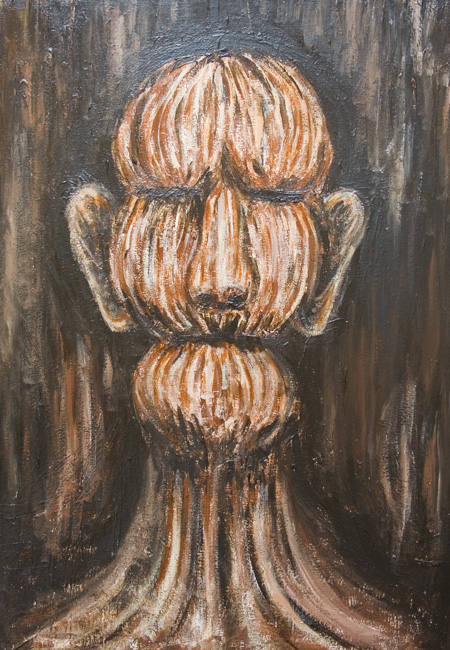 The aging of the mind and of temperaments creates traps more hurtful than any acid time adds to a back or to joints or to a body that suddenly lists when it should be anchored. For some, aging reaches out to make the world into a simpler place, one explained by a dozen or so platitudes, one comforted by glazy nostalgia. Even standing at the entrance to old age, I can feel the temptation of facile explanations. The inherent uncertainty and complexity of events can seem too much to bear, and that is before it becomes personal. In a moment I can cherry-pick the past for examples of my own fortitude and heroic endurance, and forget so easily my failures of nerve (except when it is very quiet). We try to slip away from all the ways that circumstance and luck altered our trajectories (although truth does become an insistent voice when we allow ourselves to be undistracted). Age wants to build its origin myth, its story of how we succeeded because of our own grit or failed because we were betrayed, but then scratched our way back because courage, our charm, our hard work, or our very whiteness lifted us back. Yes, we conclude, we could never have fallen so far as others.
The aging of the mind and of temperaments creates traps more hurtful than any acid time adds to a back or to joints or to a body that suddenly lists when it should be anchored. For some, aging reaches out to make the world into a simpler place, one explained by a dozen or so platitudes, one comforted by glazy nostalgia. Even standing at the entrance to old age, I can feel the temptation of facile explanations. The inherent uncertainty and complexity of events can seem too much to bear, and that is before it becomes personal. In a moment I can cherry-pick the past for examples of my own fortitude and heroic endurance, and forget so easily my failures of nerve (except when it is very quiet). We try to slip away from all the ways that circumstance and luck altered our trajectories (although truth does become an insistent voice when we allow ourselves to be undistracted). Age wants to build its origin myth, its story of how we succeeded because of our own grit or failed because we were betrayed, but then scratched our way back because courage, our charm, our hard work, or our very whiteness lifted us back. Yes, we conclude, we could never have fallen so far as others.
Kazuya Akimoto: “Monumental Old Age”
At a gathering recently I overheard a sentence emerge from a group of men roughly my age that began with “The Muslims ….” and yet another that ended with “ … the Blacks won’t allow it.” Both sentences offered predictable, dismal conclusions. I have my own stupidities, my bags of ugly thoughts and outbursts, but Good Bloody Christ I cringe when I hear those words and their ilk. What forces in our upbringing and in the larger history of our species pulls us back toward these witless tribal bonds?
What threatens to die in us as the years add up?
Age bestows neither second sight nor any kind of sheathe of wisdom. Hard decisions still bring disquiet — it remains a daunting task to discern where prudent caution becomes cowardice. And most of us stumble along, our hands figuratively outstretched like a con in old school solitary confinement; sometimes there is no light by which to see.
A winnowing down of certainties occurs and a type of vigilance grows. More than ever I try to believe in self-reliance and mercy, both the far-off wave and the outstretched hand, both the withdrawal to a watchful distance and tenderness, both the one who figures out how to do things himself but who will also help a stranger. I know now that I want to forever be delivered from fanatics and followers and pay closer attention to those men and women wiser than me who try to see what is real and what might be graciously and generously made better.
I especially distrust the desire to go back. We must remember, but I do not understand wading about in a past we imagine to have been more genial and unclouded than the present. There is no going back to any past happiness — its ephemeral nature is its only reality. We must keep our eyes forward: “To live well … nostalgia must be resisted; you must … stay tied to the present, remain mobile, … engage with the muddle and duplicity and difficulty of life (11).”
Like my father before me, I do not want to be confined. The world is on fire with cruelty but alight with wonders — I just want to keep moving, resisting the fire and hoping for more of the light.
Why Homer Matters by Adam Nicolson P.S. This is a splendid book.
After his daily, morning spending time at the Tampa Stock exchange, I asked my Grandfather, who was well into his 70’s, ” Why do you always lunch with guys that are so much younger than you?” He said, ” because the old ones always talk about their health and old men matters”. This was a big answer for me. I try not to focus on what I can’t change and I try to keep thinking like a “young person”.
Looking forward to you and Patti coming this Sunday! Buddy is waiting to see you again!
I don’t always get to read your posts, but always enjoy hearing your thoughtful perspectives about life.